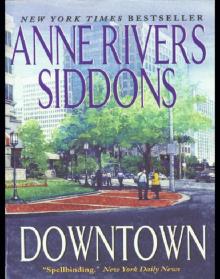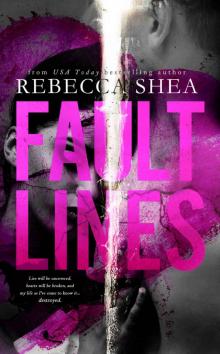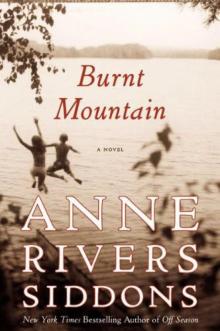- Home
- Anne Rivers Siddons
Homeplace
Homeplace Read online
ANNE RIVERS
SIDDONS
HOMEPLACE
Dedication
For Larry Ashmead
First, last, and always
Table of Contents
Title Page
Dedication
1
2
3
4
5
6
7
8
9
10
11
12
13
14
15
16
17
18
19
20
21
22
23
24
25
26
27
28
29
30
31
32
33
CRITICAL ACCLAIM FOR ANNE RIVERS SIDDONS AND HOMEPLACE
Books by Anne Rivers Siddons
Copyright
About the Publisher
1
EVEN BEFORE SHE OPENED HER EYES, THE CHILD WAS AFRAID. Coming out of sleep, she was not sure where she was, only that it was wrong. She should not be in this place. He would be very angry. She was eight years old, and she had been afraid of him all of her life.
She lay still and listened, and heard the rain. The rain came riding on a vast gray wind, to pepper the flat tin roof and sing in the tops of the black-green pines in the woods across the road from the cabin. Over it, much nearer at hand, she heard the chink of the iron poker in the cooling fireplace, and the visceral, thumping wail of the Atlanta jigaboo station on the radio Rusky had given J. W. for Christmas.
Without opening her eyes, the child burrowed her head under the flaccid feather pillow and dragged the quilt closer around her. Her body was warm in the piled nest of quilts and blankets Rusky had heaped over her during the night, but her feet were icy and her nightgown must be up around her neck, because her legs were cold up to her thighs. She took a deep breath, inhaling musty bedclothes and the ashy, dark smell the cabin always had, made up of smoke from the fireplace and the smell of Rusky and J.W. themselves. It was not sweat, though that was part of it; it was more, was the fecund essence of the Cromies, who lived in the sagging cabin behind the big house on Pomeroy Street. It was a rich smell, deep and complicated, somehow very old, the essence of all Negroes Mike had ever known.
“Why do Nigras smell like ashes?” she had asked Rusky once.
“’Cause dey spends so much time tendin’ to white folkses’ fires,” Rusky said, thumping the iron down on the ironing board in the big, square, sweet-steamed kitchen. “And ’cause de Lord give ’em that smell, same as he give you a smell like a new li’l ol’ puppy. Kindly of sweet and sour at the same time. It ain’t polite to ax folks why they smells like they does, Mike. It hurts they feelings.”
“Are your feelings hurt?”
“Naw, but I’m yo’ family. Don’t you go axin’ nobody outside yo’ family why they smells like they does.”
“Why are you my family if you’re black and I’m white?”
“Go on, now, I got to finish this arnin’ and get on to them beans, or ain’t none of you gon’ get any supper. You just axin’ questions to hear yourself talk.”
The child’s name was Micah Winship. She did not want to open her eyes, to lose the cocoon of the bed and the covers. She drifted for a space of time, her legs and feet drawn up to her body, willing Rusky to remain silent, but she did not.
“Git up, Mike. Time to go over yonder an’ start breakfast. You know you daddy don’t know you over here.”
“I don’t want to get up.”
“I don’t care what you wants. You really be in a fix if he come back from his walk an’ fin’ you over here with me. I promise him the las’ time I ain’t gon’ bring you home with me no more. He like to fire me if he catch you sleepin’ over here with me, an’ then what you all gon’ do?”
“I don’t care. I’m not going to get up.”
“You promise me las’ night after that nightmare an’ all that hollerin’ you doin’ that you get up when I call you if I let you come home with me. Big girl like you, in the third grade, yellin’ an’ hollerin’ like that. Git up, now. Move yo’self.”
“I don’t have to. You can’t make me.”
“Well, I know somebody what can make you, an’ right quick, too. Come on, J.W. We gon’ go tell Mr. John Mike over here in the baid an’ we cain’t git her out.”
“Aw, Mama …” J.W. said from the shed room off the cabin’s main room, where he slept winter and summer.
“I’m gon’ out dis door, Mike, J.W.,” Rusky said, and slammed it to emphasize her words.
“Wait!” Mike shrieked, jumping out of the cocoon of covers and rummaging blindly for her blue jeans and sweater. Fear leaped like brush fire. “Wait for me, Rusky! I’m coming … don’t tell him!”
“Don’t tell who what?” said Derek Blessing, and Mike awoke finally and abruptly, and sat up in the great bed in Derek’s crow’s nest of a bedroom atop the beach house on Potato Road, in Sagaponack, Long Island. Rain on a tin roof and the sough of the wind in the sweet pines of Lytton, Georgia, became the residual spatter of the sullen, departing northeaster and the boom of the surf on the beach, and the acid smell of Rusky Cromie’s moribund fire became the first breath of the resurrected one in Derek’s freestanding Swedish fireplace. J.W.’s radioed Little Richard became Bruce Springsteen. She looked around her. She was naked in the bed, with the ridiculous mink throw trailing across her and onto the floor, leaving her feet and legs bare to the cold air flooding in from the open sliding glass doors facing the heaving pewter sea. Her heart was still hammering with the now-familiar slow, dragging tattoo of the past two days, and her mouth tasted foul and metallic from the unaccustomed tranquilizer and the cognac they had drunk last night. The snifter still sat, half full, on the table beside her, and the sweet, cloying fumes sickened her slightly. She cleared her dry, edged throat and combed her hair back with cold fingers. She squinted up at Derek Blessing, who sat down on the bed with a proffered mug of coffee. It smelt only slightly better than the cognac, probably because of the cinnamon Derek ground into it, an affectation he had picked up somewhere on his latest promotional tour for Broken Ties.
“That must have been a world-class nightmare,” he said, settling his bulk onto the low bed that was not really a bed at all, but a vast mattress resting bargelike on the pale wood of the floor. He wore blue velour sweat clothes and a piratical red sweatband around his head, and his wild cotton boll of coarse, curly gray hair was wet. Streams of water or sweat rolled down his neck, and the towel was wet.
“Have you been running?” Mike asked. Obviously he had, but she wanted diversion, not information.
“Six miles.” He patted the pedometer attached to one trunklike leg. “Up a full mile in less than a week.” He was between books and, admittedly, blocked in his attempts to start a new one. He was fiddling discontentedly with short articles and essays, which he disliked, and Mike knew that when he was in this state he became obsessed with exercise. His squat, muscular body had lost some of its soft blurring at belly and thigh, and he was not drinking as much as usual. “What were you, being chased by a rabid editor or something? You thrashed around like a water buffalo all night and talked to somebody half of it. I’ve never heard you talk in your sleep before.”
“I don’t remember,” Mike said. She did, but found the dream profoundly disturbing, though on the face of it there was nothing about a dream of spending a long-ago night with Rusky in her little cabin that should have disturbed her. Annie Cochran had told her to pay particular attention to her dreams and to remember, even write down,
as much as she could of them. But Mike did not want to write this one down. She did not even want to discuss it with Derek. She wanted instead to drink her coffee and slide back into the nest she had made under the throw and lie with Derek’s arms around her for another hour or two, until the hammering in her chest had subsided and she could put her thoughts in order. It was Sunday morning, and she would have to get the one o’clock train back to Manhattan, otherwise she’d have to wait until seven, and that was too late to leave Rachel with the Perezes on Bleecker Street. That or take the jitney, and she hated the jitney …
She remembered then that her daughter was not waiting for her back in the city and would not be, and there was really no reason to get the one o’clock train or even the last one, at seven. There was no reason to go back to the city at all. There was no new assignment to begin. There was no one to call and check in with. There was not, now, a book in the offing, and soon there would not even be a place in the city to go back to.
The heart hammering accelerated until she could feel the pulse in her throat leaping with it and see it battering at the blue-white skin of her wrist like a frantic bird.
“’Scuse,” she said, and slipped out of bed and into the bathroom, where she had left her piled clothes and her handbag, and quickly gulped a Xanax. The alien reflex almost gagged her. She looked at her reflection in Derek’s relentlessly floodlit, mirrored wall. Ribs and great fear-darkened gray eyes and wild, ashen, spindrift hair wet with sweat at the temples and matted into a sluttish tangle. White, flared nostrils. Bitten lips, puffed from the pressure of Derek’s the night before, pressed so hard together that the muscles beside them stood out in the blaze of fluorescence. Greenish circles beneath the eyes and deeper shadows in the hollows beneath the sharp cheekbones. Mike smiled at herself, a ghastly rictus, and shut her eyes in pain.
I look like those photographs they made in the Nazi concentration camps, when they first went in and saw what was there, she thought. One of those living dead things grinning at its liberators. Welcome to Bergen-Belsen. My name is Micah Winship, and I’m your hostess for today.
She splashed water on the skeleton’s face and turned Derek’s shower on full force. The Hammacher-Schlemmer deluxe shower head was turned to massage, and she flinched under the assault of the pulsing needle spray. Her muscles were sore. Her very skin hurt to touch, as it does when you have a high fever.
“Hurry up,” Derek shouted at her over the rush of the water and the driving bass of the music. “I’m going to make you eggs Benedict, and then I think I’ll ask Alan and Chloe to come over for Bloodys. They’ve been in Sag Harbor for five days and I haven’t seen them.”
“You wouldn’t consider just crawling back into bed for three or four years, would you?” Mike called back. The water masked the tremor in her voice quite effectively. “It’s not a fit day for anything else.”
“It’s clearing in the west,” he called back. “And I’ve got to talk to Alan about this Rolling Stone thing. I’ve got to get on it this afternoon and work all night, unless he can get me a few more days from that bastard. What’s with you anyway? You’ve slept almost two straight days.”
“San Francisco was a bitch, and you know I don’t ever sleep much on assignment. I’ve got six weeks’ catching up to do,” Mike said, turning off the water. She leaned against the hand-painted tiles of the wall and closed her eyes, letting the smooth coolness seep into her flaming cheek. The downstairs shower had moss-slicked, bare lathing walls and a rough concrete floor and a drain, and no curtain. Photographers always gravitated to that shower, for some reason; it had appeared in almost as many glossy magazines as Derek’s simian, punished face. But upstairs, where no photographers and few other people were ever permitted, Derek insisted on his creature comforts. He told her once that he had spent as much on his upstairs bedroom and bath as he had on the entire house when he’d bought it twenty years before. It did not particularly bother Mike that he posed and postured as he did, nor that the careful, rough-exterior-sensitive-interior image he presented to the world went only as deep as his K-Mart denims and Caterpillar billed caps and work boots. He had a soaring, eccentric talent, even if his critics were beginning to tear at his flanks like a pack of jackals now, and he was a tireless, inventive, and ardent lover. He demanded little of Mike, displayed little of his legendary temper, was generous with his time and attention, and was invariably delighted to see her when she came to the beach house for weekends, as she did a couple of times each month. Neither had ever spoken of love. He did not come into the city, and she did not press him to do so. They had been together for almost three years.
Rachel had not liked him.
“He’s a phony baloney,” she had said after she had met him at a large garden party in Southampton, where Mike had taken a rental house that first August. He and Mike had met at the home of his agent, Alan Peden, whom Mike knew and liked, and by the time Rachel had met him he had taken Mike to dinner three times and to bed once.
“He said he thought I was going to be a dynamite-looking broad when I grew up, just like you, and he wanted to get his name on the list early. But I could tell he didn’t like little kids.”
“How?” Mike had asked, half amused and half annoyed at both Rachel and Derek Blessing.
“Because nobody would say ‘broad’ to a little kid. It’s embarrassing. He thought it was, you know, cute, but I don’t like words like ‘broad.’ You always said tough talk was for boors. I think he’s a boor.”
“I do think it is, mostly, but there are also circumstances when it’s okay. It’s just his way. He’s a very talented novelist, Rachel, one of the most noted ones in the country.”
“He’s a cocksman, too.”
“I really do not like that kind of talk, my dear. Nine is a bit young for it. Where on earth did you hear that?”
“Georgette Peden told me he was, and she ought to know, she’s almost twelve. Besides, I can read. He’s been in Us and People and all sorts of places. They’re always talking about all his women. I don’t see why you want to go around with a cocksman. You’re probably no more to him than a …”
“Rachel!”
“Well. I don’t care. He’s a phony just the same. He said he’d ridden all the way over here on his bicycle, but he wasn’t even sweating. I bet he has a Lamborghini and a driver.” Rachel was into exotic automobiles that year.
Mike had put the incident down to the natural animosity of a child of a single parent for an incipient rival. She knew Derek Blessing’s reputation, and she also knew his talent. She had read his work and marveled at the surgical delicacy and unsentimental sensitivity with which he portrayed his female characters. Each one of them fairly sang with life and reality, and their joys and sorrows were meticulously detailed and authentically and memorably moving. She liked them far more than she did the men in his fiction, who were, on the whole, as hard, bright, rigid, and identical as bullets. By the time they had become lovers in the accepted sense of the word, she was aware of the dichotomy between his simplistic, exaggeratedly male public persona and his sybaritic, self-absorbed private one, but it did not concern her unduly. More so than most people, she believed, Derek had layers and strata of reality; grasshopper and ant, ascetic and sensualist, could live happily together inside his pitted and leathery hide. No one who could so light a woman into life in his writing could be a poseur in any essential way. And she was honest enough to admit to herself that some secret core of her expanded like a flower in an April rain at the attention her role as Derek Blessing’s longtime lover earned her.
“You don’t need that kind of identity,” Annie Cochran had said disapprovingly at one of their rare lunches. “You’re as well-known in your profession as he is in his, or you will be. You need to watch that.”
“It’s not the journalist who likes sleeping with him, Annie,” Mike had said. “It’s the woman. He makes me feel like I look as good naked as I do when I’m all gotten up and out at a place like this.” They were in the Bar
Room of the Four Seasons—oddly, one of the only places in New York Annie Cochran could be persuaded to lunch. She was a few years older than Mike, black, sardonic, angry, amused and amusing. She was also a brilliant psychotherapist. They had been friends since the first year Mike and Richard came to New York.
“I should hope you know you’re as attractive a woman as you are good a journalist,” Annie said. “I should hope it doesn’t take a People magazine centerfold to make you feel good about yourself.”
“Oh, enough of the psychobabble,” Mike said. Annie sometimes had a way of making her feel like she was pinioned and spread-eagled under glaring white lights. “You have to admit he’s more interesting than Richard,” she added.
“Not to mention the sportswriter before him, or the editor before that, or the minor-league anchorman before that. Or any of the others. I don’t necessarily think you need to be married again, Mike, but I do think you need to be committed.”
“In this day and age? It’s a good thing you’re not a call-in radio shrink, Annie. There aren’t any women left on the East Coast who’d listen to you.”
“You’re not any woman,” Annie Cochran had said, but that was all she did say. Later on, when Mike’s alliance with Derek Blessing had become an accepted fact and then a continuum, she did not mention it again.
Mike wrapped Derek’s thick terry-cloth robe around her and padded into the light-washed bedroom. The sky over the sea was lightening, and far out on the horizon a great sweep of sun lit the gunmetal into a startling milky aquamarine. She dropped the robe on the sheepskin rug in front of the fireplace and bent to step into her corduroys. Derek Blessing squinted at her through smoke from the custom-blended cigarette in his filter. He had ordered both from Dunhill.
“San Francisco must have been a bitch, indeed,” he said. “You don’t look so good, Mike. In fact, you look like you’ve been drowned and washed up on the beach for about six days. And your hands have been shaking ever since you got here, and you’re talking in your sleep, and I’ve never seen you drink as much cognac as you did last night. You’re on something, too; I can tell from your pupils. I never knew you to take so much as an aspirin before. You want to tell me about it, or what?”

 Colony
Colony Nora, Nora
Nora, Nora House Next Door
House Next Door Homeplace
Homeplace Downtown
Downtown Peachtree Road
Peachtree Road Sweetwater Creek
Sweetwater Creek Fault Lines
Fault Lines Low Country
Low Country The Girls of August
The Girls of August Burnt Mountain
Burnt Mountain Islands
Islands